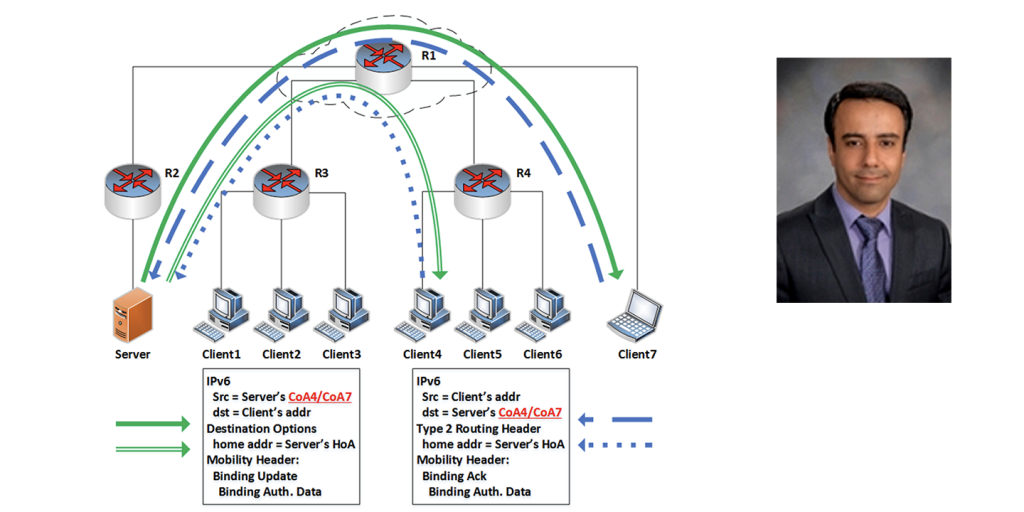
The UMBC Cyber Defense Lab presents
Moving Target Mobile IPv6 Defense
Prof. Vahid Heydari
Computer Science, Rowan University
12:00–1 pm ET, Friday, 26 February 26, 2021
remotely via WebEx
Remote cyberattacks can be started from an unlimited distance through the Internet. These attacks include particular actions that allow attackers to compromise systems remotely. Address-based Distributed Denial-of-Service (DDoS) attacks and remote exploits are two main categories of these attacks. A remote exploit takes advantage of a bug or vulnerability to view or steal data or gain unauthorized access to a vulnerable system. Current security solutions in IPv6 such as IPsec, firewall, and Intrusion Detection and Prevention System (IDPS) can prevent remote attacks against known vulnerability exploits. However, zero-day exploits can defeat the best firewalls and IDPSs due to using undisclosed and uncorrected computer application vulnerability. Therefore, a new solution is needed to prevent these attacks. This talk discusses a Moving Target Mobile IPv6 Defense (MTM6D) that randomly and dynamically changes the IP addresses to prevent remote attacks in the reconnaissance step. The talk briefly covers the wide range of applications of MTM6D including critical infrastructure networks, virtual private networks, web servers, Internet-controlled robots, and anti-censorship.
Vahid Heydari received the M.S. degree in Cybersecurity and the Ph.D. degree in Electrical and Computer Engineering from the University of Alabama in Huntsville. He is currently an Associate Professor of Computer Science and the Director of the Center for Cybersecurity Education and Research at Rowan University, Glassboro, NJ. He is also a co-founder of a cybersecurity startup ObtegoCyber. His research interests include moving target defenses, mobile ad-hoc, sensor, and vehicular network security. He is a member of ACM, IEEE Computer Society and Communications Society.
Host: Alan T. Sherman, , Support for this event was provided in part by the National Science Foundation under SFS grant DGE-1753681. The UMBC Cyber Defense Lab meets biweekly Fridays. All meetings are open to the public. Upcoming CDL Meetings:
Mar 12, Chao Liu (UMBC), Efficient asynchronous BFT with adaptive security
Mar 26, Jeremy Clark (Concordia)
April 9, (UMBC), MeetingMayhem: A network adversarial thinking game
April 23, Peter Peterson (University of Minnesota Duluth), Adversarial thinking
May 7, Farid Javani (UMBC), Anonymization by oblivious transfer